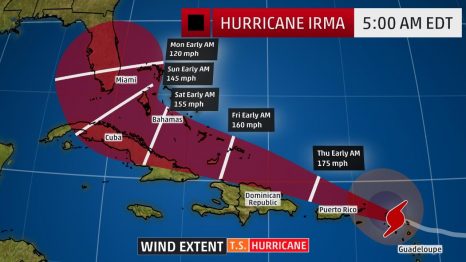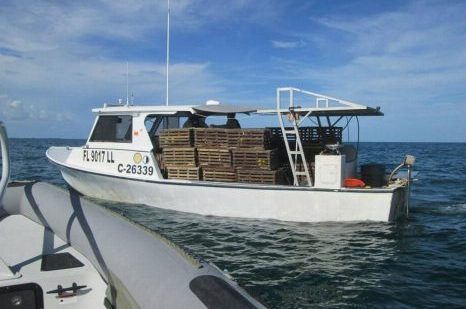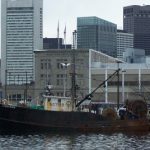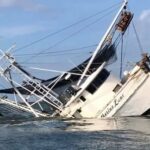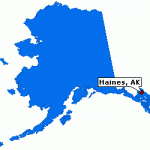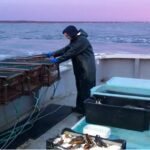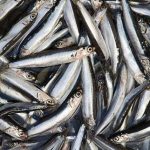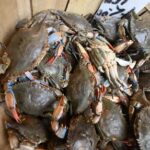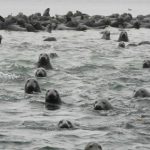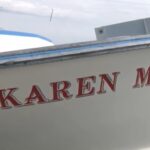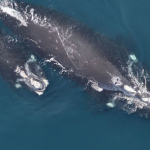Category Archives: South Atlantic
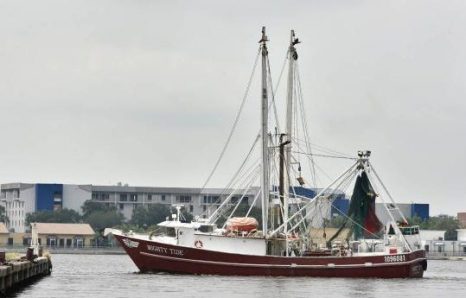
Mayport fishing vessels scramble for docks in Jacksonville in advance of Hurricane Irma
The entire First Coast shrimping and fishing fleet is in the process of moving away from the coast and into a safer docking space in downtown Jacksonville as Hurricane Irma bears down on Florida. While the storm is still churning in the Caribbean, about two dozen shrimp vessels from the Jacksonville area have retracted their nets and are leaving their usual port of Mayport. That’s where Safe Harbor Seafood is the main warehouse and wholesaler of the local catch operates. Gerald Pack, owner of Safe Harbor, said Thursday that shrimp boats and other fishing vessels, usually docked at the historic village about a mile from the mouth of the St. Johns River, have mostly headed to the old Shipyards docks that are girded with concrete near Metropolitan Park. click here to read the story 09:00
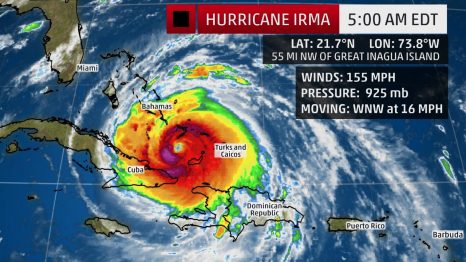
UPDATED: 23:00 Hurricane Irma a Potentially Devastating Category 4 Strike on South Florida Sunday After Raking Through the Bahamas
Hurricane Irma, a potentially catastrophic Category 4 hurricane, is now hammering parts of the Bahamas and Cuba, and will turn its fury on Florida in what is likely to be the state’s strongest hurricane strike since Charley 13 years ago. Below is everything we know about Irma right now, including its latest status, along with potential forecast impacts in the U.S. and the Caribbean Islands. click here to read the story
National Hurricane Center – Hurricane Irma Public Advisory 23:00 update click here 07:38
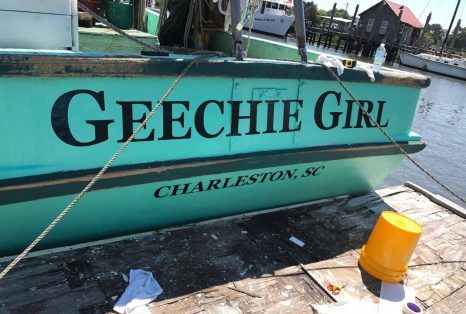
There’s a new girl in town – Geechie Girl calls Shem Creek home
Renee Rector Suggs is no stranger to the life of shrimping. She is the daughter of Bubba and Pam Rector who has owned numerous shrimp boats docked in Shem Creek. Bubba’s most current is the Warren H. Rector found at Geechie Dock down Magwood Ln. Her mom came from six generations of shrimpers. And while Warren is a first generation shrimper he provided a life for his kids that put shrimping in their blood. Shrimping is not an easy profession. It’s hard work, it’s seasonal and has it’s ups and downs. But despite it all, Renee and her husband Terry took the plunge and have purchased a trawler out of Darian, Ga. and named her Geechie Girl. click here to read the story 16:47
Former NOAA Expert, High-Accuracy Hurricane Predictor Says “Natural Cycles” Major Driver
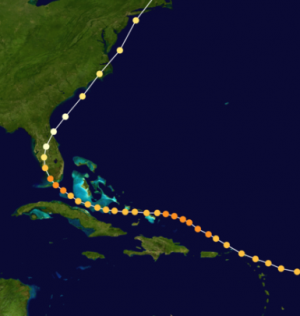 A former NOAA meteorologist and 40-year veteran of hurricane predictions believes Irma will continue to move move west toward Florida and reach near the southern tip of the Florida Peninsula around Sunday, September 11th, as a major category 4 hurricane. Both David Dilley of Global Weather Oscillations and the National Hurricane Center now believe Irma will make landfall near the southern tip of Florida, from near or just west of Miami to just west or near Jacksonville and then run up the coast into eastern Georgia. Dilley had predicted a harsh hurricane season already back in early February, long before most forecasters were ready to go public with their forecasts.So far his predictions for the current season have been impressively accurate. click here to read the story 10:20
A former NOAA meteorologist and 40-year veteran of hurricane predictions believes Irma will continue to move move west toward Florida and reach near the southern tip of the Florida Peninsula around Sunday, September 11th, as a major category 4 hurricane. Both David Dilley of Global Weather Oscillations and the National Hurricane Center now believe Irma will make landfall near the southern tip of Florida, from near or just west of Miami to just west or near Jacksonville and then run up the coast into eastern Georgia. Dilley had predicted a harsh hurricane season already back in early February, long before most forecasters were ready to go public with their forecasts.So far his predictions for the current season have been impressively accurate. click here to read the story 10:20
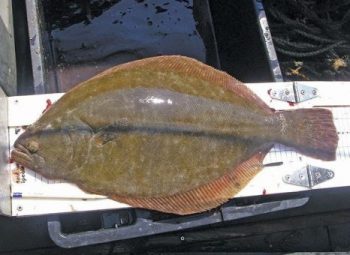
Trump official’s flounder ruling clouds Atlantic coast fish conservation
No one considers summer flounder an iconic Bay species. But fishery managers and conservationists say the ripple effect of a controversial Trump administration decision to let more “fluke” be caught in New Jersey may impact how important species such as striped bass and menhaden are managed in the Chesapeake. In the wake of an unprecedented decision by the U.S. Department of Commerce, some in Maryland are already calling on fishery managers to challenge how coastwide fishing restrictions are implemented in the Bay. The concern stems from a July ruling by Commerce Secretary Wilbur Ross that allowed New Jersey to reject harvest limits accepted by all other East Coast fishery managers, which were aimed at stemming a seven-year decline in the summer flounder population. In recent decades, states had appealed similar harvest cutbacks ordered by the Atlantic States Marine Fisheries Commission 22 times. Never before had the commerce secretary overturned a decision by the interstate panel. click here to read the story 08:47
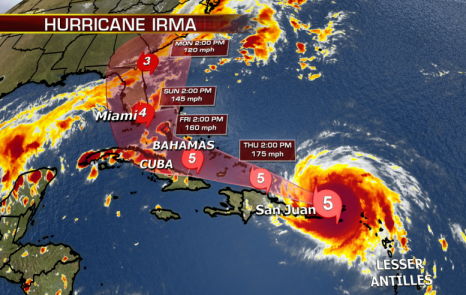
Leaving death and destruction, Hurricane Irma’s storm path: What you should know
Hurricane Irma made landfall in the Caribbean on Wednesday with record winds and powerful waves. The Category 5 storm – the strongest Atlantic hurricane ever recorded north of the Caribbean and east of the Gulf of Mexico – passed over the island of Barbuda overnight. The National Hurricane Center has warned of a growing possibility the hurricane could slam Florida later this week – as Texas and Louisiana are still dealing with the devastating aftermath caused by Hurricane Harvey. Here’s what you should know about Hurricane Irma and its trajectory. click here to read the story Hurricane Irma has killed at least 10 people and injured 23 in French Caribbean island territories as the dangerous Category 5 storm roared over the Caribbean, France’s interior minister said Thursday. click here to read the story 07:23
National Hurricane Center – Hurricane Irma Public Advisory 0:500 click here
South Atlantic Red snapper season vote upcoming
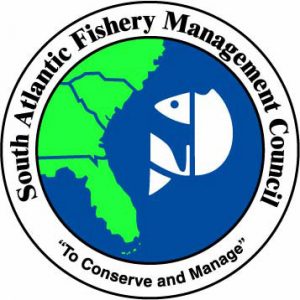 The long push to reopen red snapper fishing off the Southeastern coast comes to a head Monday when the South Atlantic Fishery Management Council will vote on one of five alternatives. Folks involved in recreational and charter fishing have advocated that the snapper stock is strong. Savannah charter fisherman Zack Bowen said at the fisheries council meeting on Jekyll Island in March, “The recreational anglers are mad as hell” about the fishery closure and charter operations are losing business because of unavailable snapper. Also, the regional fisheries administrator said at the March meeting that he thinks the population is in its best condition in 40 years. The preferred alternative is No. 4, which sets the commercial limit at 124,815 pounds and recreational limit at 29,656 fish. click here to read the story 09:49
The long push to reopen red snapper fishing off the Southeastern coast comes to a head Monday when the South Atlantic Fishery Management Council will vote on one of five alternatives. Folks involved in recreational and charter fishing have advocated that the snapper stock is strong. Savannah charter fisherman Zack Bowen said at the fisheries council meeting on Jekyll Island in March, “The recreational anglers are mad as hell” about the fishery closure and charter operations are losing business because of unavailable snapper. Also, the regional fisheries administrator said at the March meeting that he thinks the population is in its best condition in 40 years. The preferred alternative is No. 4, which sets the commercial limit at 124,815 pounds and recreational limit at 29,656 fish. click here to read the story 09:49
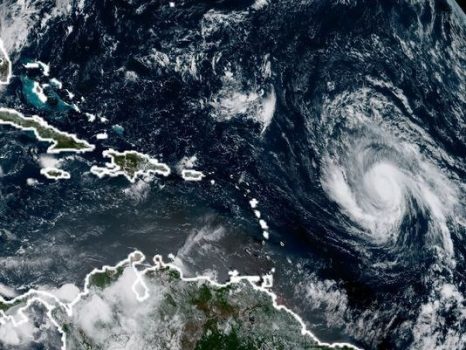
UPDATED 23:00 – Hurricane Irma now a powerful and dangerous Category 5 storm
Hurricane Irma is now a very powerful and dangerous Category 5 storm. According to the National Hurricane Center, Irma has winds of 175 mph and is expected to affect the northwestern Leeward Islands as an extremely dangerous hurricane accompanied by life-threatening wind, storm surge, and rainfall. The latest data shows the storm moving west but that would keep Jacksonville and the First Coast in the front right quadrant or the worst side of the storm. All of Florida is in the cone of concern. click here to read the story 09:06
UPDATED 23:00 National Hurricane Center – 1100 PM AST Tue Sep 05 2017 Hurricane Irma Public Advisory click here
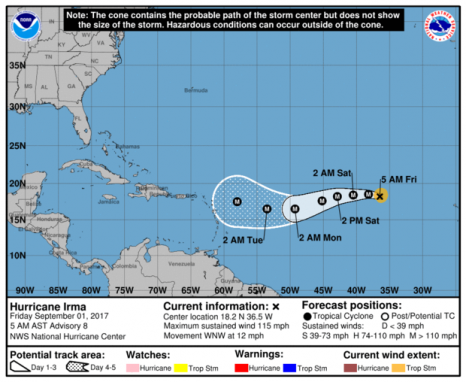
Hurricane Irma holding steady as Category 3 storm in Atlantic
Hurricane Irma was holding steady Friday morning (Sept. 1) as a Category 3 storm in the Atlantic, forecasters with the National Hurricane Center said. It’s unclear what impacts Irma might pose to land. Models are notoriously unreliable more than five days away, and Irma is not expected to near the Leeward Islands until sometime next week. The Leeward Islands are part of the eastern border of the Caribbean Sea. As of Friday morning, the storm was about 840 miles northwest of the Cabo Verde Islands and about 1,665 miles east of the Leeward Islands. It’s moving northwest at 12 mph. It’s expected to turn west again Friday night, followed by a turn to the west-southwest on Saturday. click here to read the advisory 08:29
Lobster Being Stolen in Large Numbers From Commercial Traps
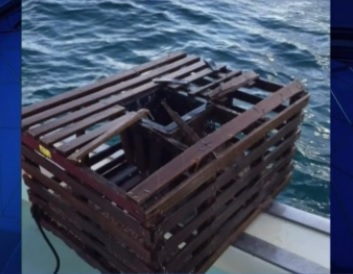 Some South Florida lobster fishermen say they’re suffering what they call an “organized and orchestrated effort” to steal their valuable lobsters. “It’s an epidemic,” said Mike Henry, who owns Bleaufish and catches lobsters exclusively for Fountainbleau Miami Beach. He says he’s seen substantial losses since the beginning of lobster season in early August. “These are not recreational divers taking our lobsters, but commercial divers systematically taking the lobster traps,” he said. video, click here to read the story 09:03
Some South Florida lobster fishermen say they’re suffering what they call an “organized and orchestrated effort” to steal their valuable lobsters. “It’s an epidemic,” said Mike Henry, who owns Bleaufish and catches lobsters exclusively for Fountainbleau Miami Beach. He says he’s seen substantial losses since the beginning of lobster season in early August. “These are not recreational divers taking our lobsters, but commercial divers systematically taking the lobster traps,” he said. video, click here to read the story 09:03
Bycatch Reduction Engineering Program – 2017 Awards
 NOAA Fisheries has awarded more than $2.3 million to partners around the country to support innovative bycatch reduction research projects through its . Bycatch of various species–fish, marine mammals, or turtles–can have significant biological, economic, and social impacts. Preventing and reducing bycatch is a shared goal of fisheries managers, the fishing industry, and the environmental community. click here to read the notice 14:10
NOAA Fisheries has awarded more than $2.3 million to partners around the country to support innovative bycatch reduction research projects through its . Bycatch of various species–fish, marine mammals, or turtles–can have significant biological, economic, and social impacts. Preventing and reducing bycatch is a shared goal of fisheries managers, the fishing industry, and the environmental community. click here to read the notice 14:10
New Group Is Dedicated to Liberating Lobsters
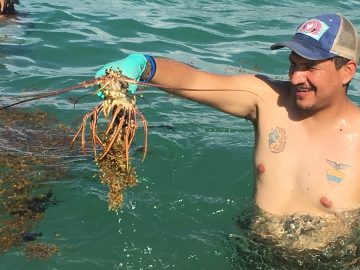 The lobster heroes are here: Crustacean Liberation is a new advocacy group dedicated to saving one of the most overlooked and abused groups of animals: lobsters, crabs, shrimp, and other crustaceans. The organization, started by Robbie Ruderman of Miami, Florida, is just getting off the ground with lobster liberations. Its goals are to “set captured crustaceans free and to raise awareness about the obscenely cruel and barbaric treatment of these innocent, feeling beings,” says Ruderman. The group buys lobsters and then works as a team to release them into the wild.,,,“If you’ve ever seen a lobster or crab lowered into a pot of boiling water,,, I have! I’ve enjoyed the end results! click here to read this,,, story 12:37
The lobster heroes are here: Crustacean Liberation is a new advocacy group dedicated to saving one of the most overlooked and abused groups of animals: lobsters, crabs, shrimp, and other crustaceans. The organization, started by Robbie Ruderman of Miami, Florida, is just getting off the ground with lobster liberations. Its goals are to “set captured crustaceans free and to raise awareness about the obscenely cruel and barbaric treatment of these innocent, feeling beings,” says Ruderman. The group buys lobsters and then works as a team to release them into the wild.,,,“If you’ve ever seen a lobster or crab lowered into a pot of boiling water,,, I have! I’ve enjoyed the end results! click here to read this,,, story 12:37
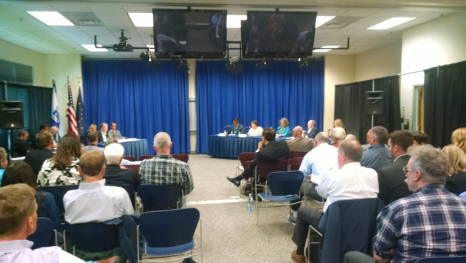
Fish pie – Everyone wants a piece
Representatives of the haves and have-nots of American ocean fisheries gathered in a packed college classroom here on Wednesday to offer Sen. Dan Sullivan, R-Alaska, their ideas on what he could do with the Magnuson-Stevens Fisheries Conservation and Management Act. The now 40-year-old federal fisheries legislation is the legacy of the late and revered Alaska Sen.Ted Stevens.,,, And there is no doubt the MSA has problems when it comes to dealing with recreational fishing. Anglers, charter-boat operators, commercial fishermen and environmental groups are at the moment all in a Gulf of Mexico scrum fighting over red snapper. It is in many ways a tussle that almost makes the long-running fish war in Cook Inlet look tame. click here to read the story 08:25
Congress Picks Sides on Trump Plan to Expand Offshore Drilling
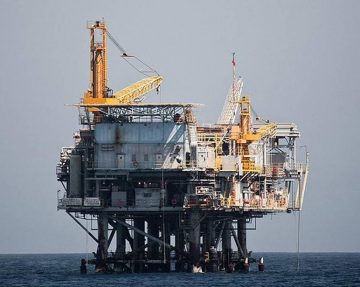 President Donald Trump’s plan to expand offshore oil drilling spurred dueling letters from members of Congress last week, 118 of whom say the plan is critical for U.S. energy security, while 69 others doubt it — plus nearly 18,000 letters of public comment, most of them opposing expanded drilling. Only 6 percent of the U.S. Outer Continental Shelf is available for leasing to oil and gas drillers from 2017 to 2022, under a drilling plan completed in the final days of President Barack Obama’s presidency. The shelf is 1.7 billion acres of submerged federal land from 3 nautical miles off the coastline, state-regulated waters, to 200 nautical miles out. click here to read the story 11:06
President Donald Trump’s plan to expand offshore oil drilling spurred dueling letters from members of Congress last week, 118 of whom say the plan is critical for U.S. energy security, while 69 others doubt it — plus nearly 18,000 letters of public comment, most of them opposing expanded drilling. Only 6 percent of the U.S. Outer Continental Shelf is available for leasing to oil and gas drillers from 2017 to 2022, under a drilling plan completed in the final days of President Barack Obama’s presidency. The shelf is 1.7 billion acres of submerged federal land from 3 nautical miles off the coastline, state-regulated waters, to 200 nautical miles out. click here to read the story 11:06
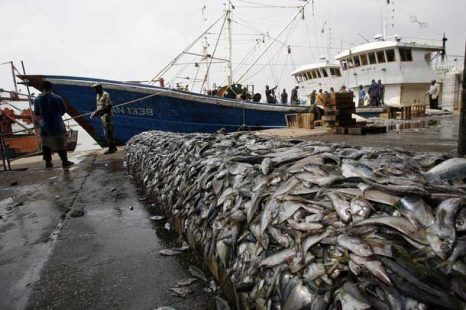
Fish Stocks And Our Balance Of Payments
Our balance of payments is overly burdened by our consumption of seafood: We import approximately 90% of the seafood that we eat. Given our natural resources, we should be net exporters of seafood. The total value of edible and non-edible fishery imports in the United States was $35.8 billion in 2016. The total value of edible and non-edible exports was $21.3 billion. The imbalance does not imply only a shipment of dollars abroad. It also implies a number of jobs exported, a number of jobs that could be created in this country, were we not to import that much more seafood than we export.,,, The reason for the imbalance in our accounts with other nations is not due to lack of fish in our waters. Not to put too fine a point on it, the imbalance is due to rules and regulations imposed by our National Marine Fisheries Service (NMFS) that prevent our fishermen from catching fish. click here to read the article by Carmine Gorga 09:21
As eels grow in value, US government clamps down on poaching
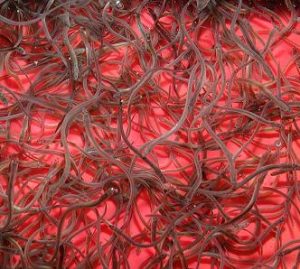 Law enforcement authorities have launched a crackdown on unlicensed eel fishermen and illicit sales along the East Coast.,, In Maine, more than 400 licensed fishermen make their living fishing for elvers in rivers such as the Penobscot in Brewer and the Passagassawakeag in Belfast every spring. They say law enforcement is vital to protecting the eels and the volatile industry. Randy Bushey, of Steuben, has been fishing for elvers since 1993. He said he saw his income balloon from as little as $5,000 per year in the 1990s to more than $350,000 in 2012. He said tighter quotas mean he’s earning less these days, and in the most recent season he made about $57,000. “I’ve seen the best, and I’ve seen the worst,” Steuben said. “I want to see it preserved. I want to see it straightened out.” click here to read the story 08:16
Law enforcement authorities have launched a crackdown on unlicensed eel fishermen and illicit sales along the East Coast.,, In Maine, more than 400 licensed fishermen make their living fishing for elvers in rivers such as the Penobscot in Brewer and the Passagassawakeag in Belfast every spring. They say law enforcement is vital to protecting the eels and the volatile industry. Randy Bushey, of Steuben, has been fishing for elvers since 1993. He said he saw his income balloon from as little as $5,000 per year in the 1990s to more than $350,000 in 2012. He said tighter quotas mean he’s earning less these days, and in the most recent season he made about $57,000. “I’ve seen the best, and I’ve seen the worst,” Steuben said. “I want to see it preserved. I want to see it straightened out.” click here to read the story 08:16
Our View: Federal fishery decision undermines management
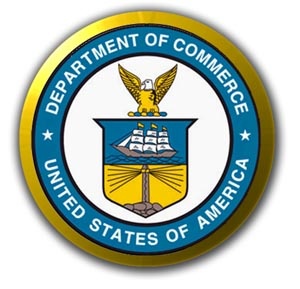 Years of measured, responsible attempts to improve the effectiveness of the Magnuson-Stevens Fishery Conservation and Management Act in these dynamic and troubled waters are challenged by a new threat: the secretary of Commerce, the next to last stop (before the president himself) in the chain of command for fishery management. Commerce Secretary Wilbur Ross, known as the “King of Bankruptcy” for his investment strategy, overruled at the end of July a decision by the Atlantic States Marine Fisheries Commission, potentially undermining the cooperative management of near-shore fisheries of the 15 coastal states from Maine to Florida. click here to read the op-ed 09:38
Years of measured, responsible attempts to improve the effectiveness of the Magnuson-Stevens Fishery Conservation and Management Act in these dynamic and troubled waters are challenged by a new threat: the secretary of Commerce, the next to last stop (before the president himself) in the chain of command for fishery management. Commerce Secretary Wilbur Ross, known as the “King of Bankruptcy” for his investment strategy, overruled at the end of July a decision by the Atlantic States Marine Fisheries Commission, potentially undermining the cooperative management of near-shore fisheries of the 15 coastal states from Maine to Florida. click here to read the op-ed 09:38
Time is running out to protect the Atlantic coast
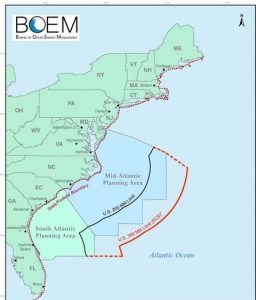 President Trump has proclaimed that his administration is seeking “American energy dominance.” The reality is we’re already there. The United States produces more natural gas and oil than any other nation. We do import about 25 percent of our oil needs mostly from Canada and Mexico. However, that’s only because we export about 1 million gallons a week of the type of domestically produced oil we don’t want. The U.S. is beholding to no other country for our energy security. If these facts come as a surprise to you, then you are ripe for being deceived by those who want to use airgun blasting to explore for oil and gas off the Atlantic Coast. The petroleum industry and its allies are trying to convince you that current technology and procedures for testing for offshore oil and gas deposits are safe. click here to read the story 09:13
President Trump has proclaimed that his administration is seeking “American energy dominance.” The reality is we’re already there. The United States produces more natural gas and oil than any other nation. We do import about 25 percent of our oil needs mostly from Canada and Mexico. However, that’s only because we export about 1 million gallons a week of the type of domestically produced oil we don’t want. The U.S. is beholding to no other country for our energy security. If these facts come as a surprise to you, then you are ripe for being deceived by those who want to use airgun blasting to explore for oil and gas off the Atlantic Coast. The petroleum industry and its allies are trying to convince you that current technology and procedures for testing for offshore oil and gas deposits are safe. click here to read the story 09:13
The American Fisheries Advisory Committee Act: S-1322 – Sam Parisi, Gloucester
Last year I served on a panel to review applicants for S-K Grant money in Saint Petersburg,  along with ten other experienced fisherman thru out the USA. After two days of reviews we graded those and our mission was done. We had no idea who was awarded the grant money at the end of the two days. After a month the ones that were chosen were published. I notice one recipient from the East Coast was awarded $375,000 dollars yet I never saw come before the panel. I called the head man in Saint Pete and ask why I never saw it, and he said it was on a different panel. I was on both panels and it never came up. I believe that NOAA decides who gets the funds and the panel is there to appease the public. A Senator from Alaska heard my story and told me he was putting in a bill to go back to an advisory panel like it had in 1954. Bear in mind, this a year in the making and he asked for my help by contacting our Politian’s in the North East which I did. Two days ago Commerce Department approved his bill S-1322. The vote was 26 to one. What this means is NOAA will no longer receive the SKG money. A panel will be chosen by the Secretary of Commerce. Perhaps our fisherman will now see some of this money. Thank You, Sam Parisi, Gloucester Mass. click here to read the bill Commerce Approves Eight Bills and 10 Nominees – click here Thank you, Sam! 10:46
along with ten other experienced fisherman thru out the USA. After two days of reviews we graded those and our mission was done. We had no idea who was awarded the grant money at the end of the two days. After a month the ones that were chosen were published. I notice one recipient from the East Coast was awarded $375,000 dollars yet I never saw come before the panel. I called the head man in Saint Pete and ask why I never saw it, and he said it was on a different panel. I was on both panels and it never came up. I believe that NOAA decides who gets the funds and the panel is there to appease the public. A Senator from Alaska heard my story and told me he was putting in a bill to go back to an advisory panel like it had in 1954. Bear in mind, this a year in the making and he asked for my help by contacting our Politian’s in the North East which I did. Two days ago Commerce Department approved his bill S-1322. The vote was 26 to one. What this means is NOAA will no longer receive the SKG money. A panel will be chosen by the Secretary of Commerce. Perhaps our fisherman will now see some of this money. Thank You, Sam Parisi, Gloucester Mass. click here to read the bill Commerce Approves Eight Bills and 10 Nominees – click here Thank you, Sam! 10:46
Atlantic States Marine Fisheries Commission Summer Meeting in Alexandria, Virginia – August 1 – 3, 2017
 Starts August 1, 2017 12:00 am Ends August 3, 2017 12:00 am. Location The Westin Alexandria, 400 Courthouse Square, Alexandria, Virginia 22314; 703.253.8600 For ease of access, all Board/Section meeting documents have been combined into three documents – Main Meeting Materials1 click here. (which includes all of the main meeting materials for August 1 through the American Eel Board on August 2); Main Meeting Materials 2 click here (which inlcudes main meeting materials for Atlantic Menhaden Board all meetings on August 3) and Supplemental Meeting Materials click here (which include all Board supplemental materials with the exception of the Shad & River Herring Board). Links to individual board/committee materials can be found below. Board meeting proceedings will be broadcast daily via webinar beginning August 1st at 9:45 a.m. and continuing daily until the conclusion of the meeting (expected to be 4:30 p.m.) on Thursday, August 3rd. click here for webinar link 13:36
Starts August 1, 2017 12:00 am Ends August 3, 2017 12:00 am. Location The Westin Alexandria, 400 Courthouse Square, Alexandria, Virginia 22314; 703.253.8600 For ease of access, all Board/Section meeting documents have been combined into three documents – Main Meeting Materials1 click here. (which includes all of the main meeting materials for August 1 through the American Eel Board on August 2); Main Meeting Materials 2 click here (which inlcudes main meeting materials for Atlantic Menhaden Board all meetings on August 3) and Supplemental Meeting Materials click here (which include all Board supplemental materials with the exception of the Shad & River Herring Board). Links to individual board/committee materials can be found below. Board meeting proceedings will be broadcast daily via webinar beginning August 1st at 9:45 a.m. and continuing daily until the conclusion of the meeting (expected to be 4:30 p.m.) on Thursday, August 3rd. click here for webinar link 13:36
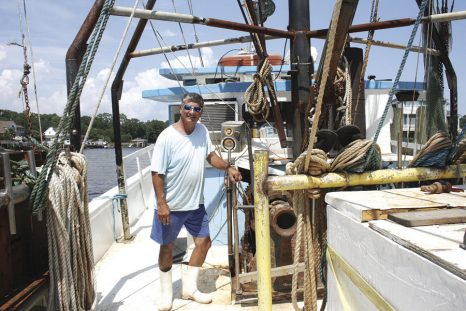
Myrtle Beach Shrimper enters the political ring
Mike Hobeika says his family was the third family to settle in Myrtle Beach many, many years ago. He grew up in a small motel on Ocean Boulevard and the city of years ago was his stomping grounds. Now, he wants to help lead the city that he has loved his entire lifetime and a city, he says, that has lost its way. Hobeika has decided to enter the race for one of the three city council seats up for grabs this November.,, Sitting on his shrimp boat along the Intracoastal Waterway, Hobeika said he’s just a hard working guy who wants Myrtle Beach to be the safe, thriving city it once was. click here to read the story 10:50
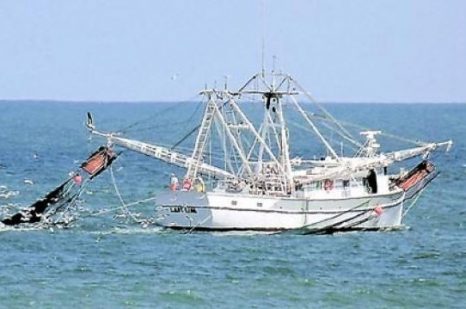
That trawler wasn’t harvesting shrimp
It’s not often that beachgoers see a shrimp trawler skirting the beaches less than a mile offshore and in broad daylight. That’s what happened last week along the Anastasia Island coastline as a 75-foot trawler made its way north and meandered close to shore, attracting the attention of vacationers. As it turned out, the well-equipped “Lady Lisa” wasn’t shrimping at all. She is one of four research vessels maintained by the South Carolina Department of Natural Resources. The vessel is the primary sampling platform for several state and federal projects. It works near coastal waters between Cape Hatteras, North Carolina, and Cape Canaveral, Florida. A vessel with a storied past! click here to read the story 14:21
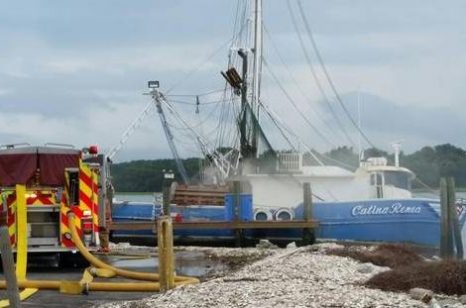
Hilton Head Island shrimp boat catches fire
Hilton Head Island Fire and Rescue firefighters were kept busy Tuesday by a shrimp boat that caught fire behind Hudson’s Seafood Restaurant. The boat took on water and leaked fuel into the waterway, fire departament spokeswoman Joheida Fister said. The fire was reported around 6:30 a.m. and firefighters arrived to find a fire in the boat’s engine room, Fister said. Flames damaged the engine room and much of the shrimp hold area in the boat, which was docked behind the restaurant. More images, click here to read the story 14:20
DRILLING FISHERMEN By Karen Wall
 For the last 20 years, the screws have been continually tightened on fishermen. A few flounder here, a few grouper there … slowly choking the life out of both commercial and recreational fisheries, with the incessant mantra that fishermen didn’t care about the resource and that at the rate we were going, the oceans would be empty by 2050. The contention was and has been that fishermen lacked any semblance of self-control, and that they needed to have their industry saved from themselves. That was the argument used in 2005 and 2006, when Lee Crockett, the director of federal fisheries policy for the Pew Charitable Trusts, was leading the charge to cut the summer flounder quota to 5 million pounds, economic issues be damned. Crockett continually insisted that summer flounder were in danger of reaching the extinction tipping point because of greedy, shortsighted fishermen — a common theme in the Pew-funded arguments about fishermen. click here to read the op-ed 07:07
For the last 20 years, the screws have been continually tightened on fishermen. A few flounder here, a few grouper there … slowly choking the life out of both commercial and recreational fisheries, with the incessant mantra that fishermen didn’t care about the resource and that at the rate we were going, the oceans would be empty by 2050. The contention was and has been that fishermen lacked any semblance of self-control, and that they needed to have their industry saved from themselves. That was the argument used in 2005 and 2006, when Lee Crockett, the director of federal fisheries policy for the Pew Charitable Trusts, was leading the charge to cut the summer flounder quota to 5 million pounds, economic issues be damned. Crockett continually insisted that summer flounder were in danger of reaching the extinction tipping point because of greedy, shortsighted fishermen — a common theme in the Pew-funded arguments about fishermen. click here to read the op-ed 07:07
Pew Trust proposes Arctic drilling standards – Many environmental groups flat-out oppose offshore Arctic drilling, but Pew’s Marilyn Heiman says they do not go that far. “Pew does not have a position that we oppose all offshore drilling, but we do believe there are ways that this can be done right,” Heiman said. click here
Catch Shares Editorials – Articles that are a must read for every fisherman concerned about their right to fish!!!!! click here
US congressman wants imported seafood tracked like domestic products
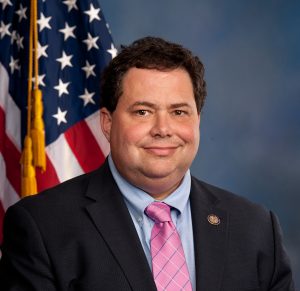 For the second straight congressional session, a representative from Texas has introduced a bill he claims would level the playing field between American fishermen and their foreign counterparts. Late last month, U.S. Rep. Blake Farenthold filed the “Protecting Honest Fishermen Act of 2017.” The legislation calls for all seafood sold in America to be traceable from the time it was caught to the time it was served. Under current regulations, importers do not need to provide the same level of information as domestic fishermen. “American fishermen shouldn’t be at a disadvantage to foreign fishermen especially here in the United States,” the Republican said in a statement. click here to read the story 17:44
For the second straight congressional session, a representative from Texas has introduced a bill he claims would level the playing field between American fishermen and their foreign counterparts. Late last month, U.S. Rep. Blake Farenthold filed the “Protecting Honest Fishermen Act of 2017.” The legislation calls for all seafood sold in America to be traceable from the time it was caught to the time it was served. Under current regulations, importers do not need to provide the same level of information as domestic fishermen. “American fishermen shouldn’t be at a disadvantage to foreign fishermen especially here in the United States,” the Republican said in a statement. click here to read the story 17:44
In Supporting Offshore Drilling, Virginia’s Governor Now Stands Alone in the Southeast
 The North Carolina governor’s office — once the leading force behind the push to open the Southeast coast to offshore oil and gas exploration and drilling — has reversed course under new leadership and amid dramatic political shifts on the issue. Gov. Roy Cooper (D) held a press conference this week on a barrier island along the Crystal Coast, a popular North Carolina tourist spot, to announce that his Department of Environmental Quality would submit formal comments to the Trump administration opposing permits allowing seismic testing for offshore oil and gas reserves.,,, That leaves McAuliffe as the lone Southeastern coastal representative in the Governors Coalition,,, click here to read the story 13:47
The North Carolina governor’s office — once the leading force behind the push to open the Southeast coast to offshore oil and gas exploration and drilling — has reversed course under new leadership and amid dramatic political shifts on the issue. Gov. Roy Cooper (D) held a press conference this week on a barrier island along the Crystal Coast, a popular North Carolina tourist spot, to announce that his Department of Environmental Quality would submit formal comments to the Trump administration opposing permits allowing seismic testing for offshore oil and gas reserves.,,, That leaves McAuliffe as the lone Southeastern coastal representative in the Governors Coalition,,, click here to read the story 13:47






